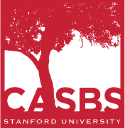Available Now!

The Center for Advanced Study in the Behavioral Sciences (CASBS) at Stanford University hosts and provides open access to an indispensable resource that illuminates compelling topics, questions, challenges, and lines of inquiry likely to shape and advance social and behavioral science research agendas for years to come.
Emerging Trends in the Social and Behavioral Sciences is an online compendium that promotes exploration of issues and themes in broader, interdisciplinary contexts. Its current iteration, comprised of 465 essays written by experts spanning a range of fields, connects ideas, approaches, and other facets of topics across disciplinary boundaries through layers of cross-referenced hyperlinks in each of the essays. This enables Emerging Trends users — scholars, students, and educated non-specialists — to expand their research directions and generate new ways of thinking and understanding.
To remain cutting edge and forward looking, Emerging Trends has evolved over time, with many authors updating their essays and others contributing new essays. The collection’s new host is CASBS, a key player in its development. Approximately one-third of essay authors and most of the project’s consulting editors are former CASBS fellows. Moreover, among Emerging Trends’ co-general editors, the singular constant has been Robert A. Scott, CASBS associate director from 1983–2001 (and acting associate director from 2009–10) and, to this day, one of the Center’s most steadfast and enthusiastic champions. In 2016, CASBS established a lectureship fund in his name.
In an introduction essay, Bob Scott traces the project’s history and progress, explains essay curation and evaluation, and elucidates the cross-topic linkage features that help make Emerging Trends in the Social and Behavioral Sciences the invaluable knowledge resource it is.
